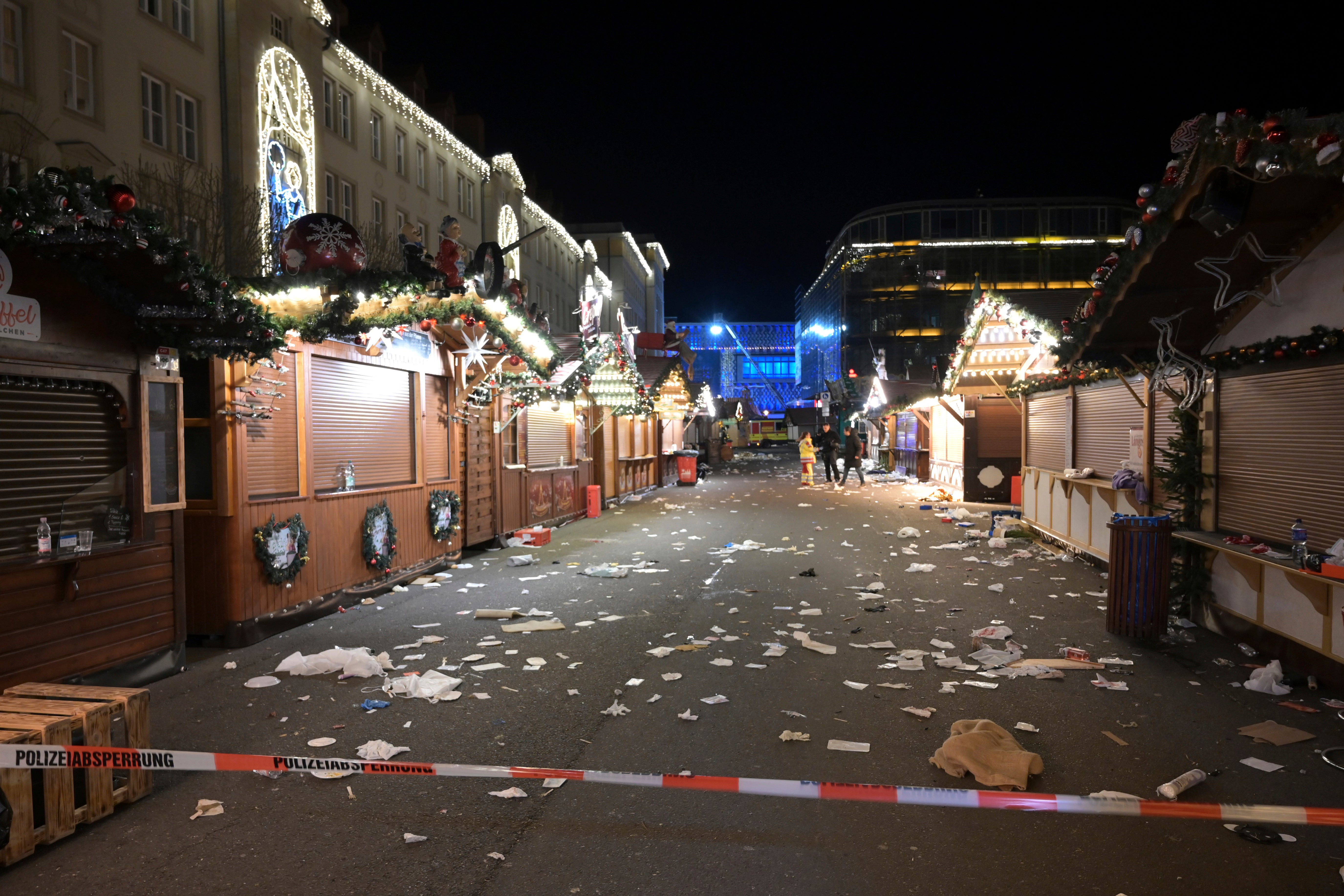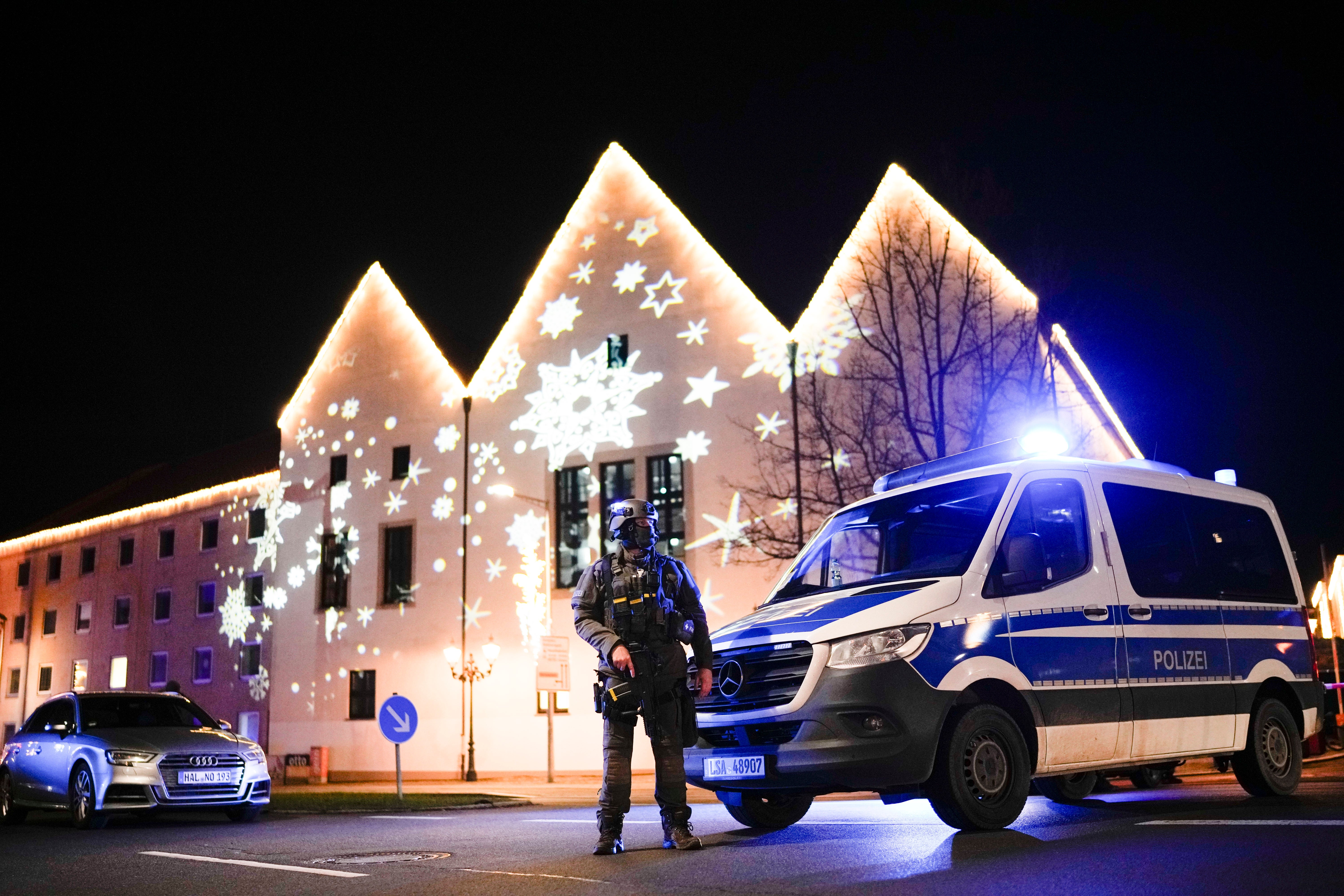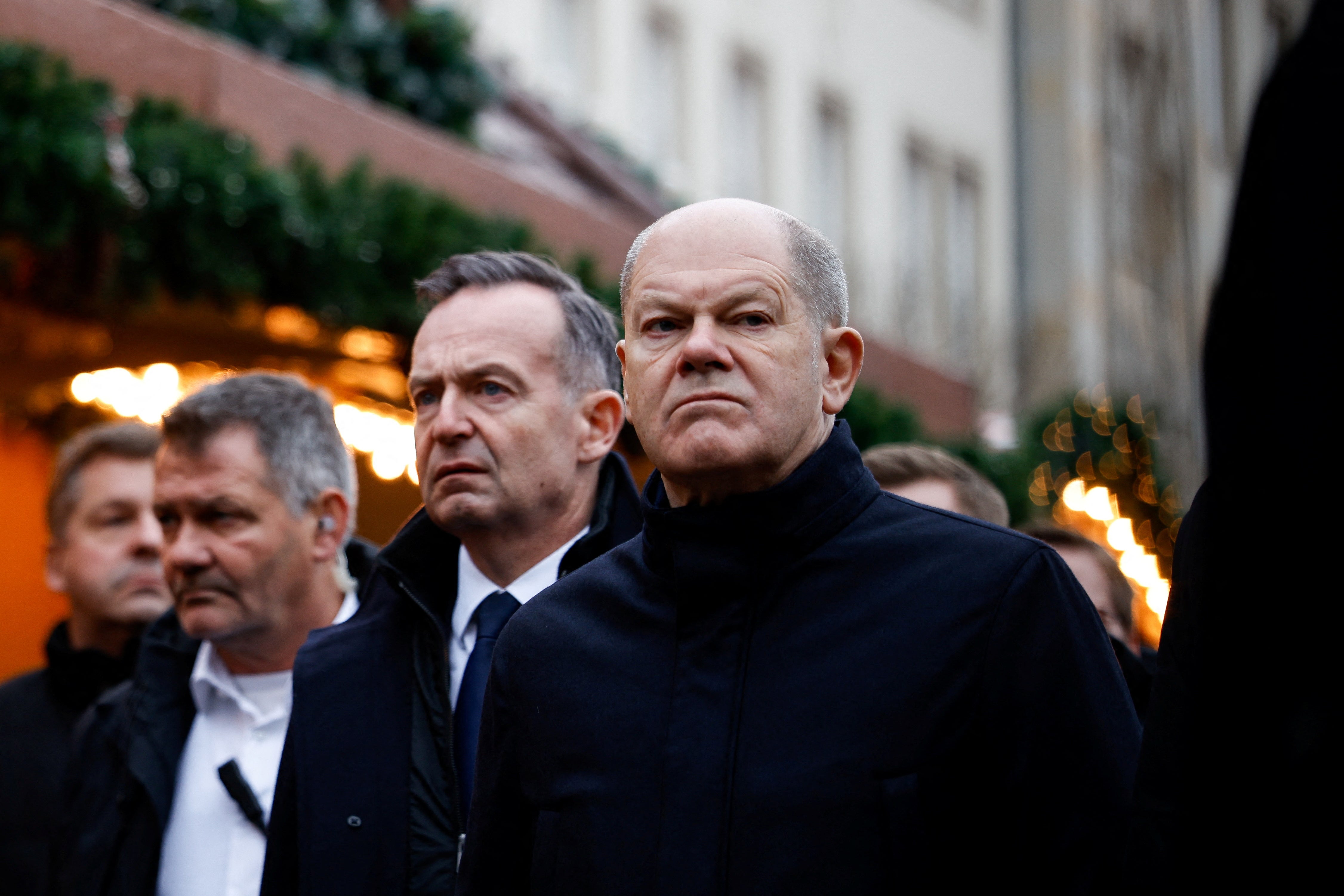Whatever the aim, the German Christmas market attack will surely make the West more divided
The confounding picture of Taleb A. makes his aims while behind the wheel on Friday night all the more muddy. But for too many people and politicians, the identity of the perpetrator as an Arab will be enough, Mark Almond writes
Does terrorism work? It depends what the aim of the perpetrator is – and in the case of Friday night’s Magdeburg Christmas market attack it’s not as clear cut as it may have seemed in the immediate aftermath.
When the suspect, 50-year-old Saudi doctor Taleb A., drove through the market in an act that killed several people and injured scores more, the Western world was immediately cast back to December 2016, when Tunisian man Anis Amri ploughed a truck through a Berlin Christmas market in a deadly attack for which Islamic State later boasted credit.
Taleb A arrived in Germany in 2006 and was recognised as a refugee in 2016. He is also reportedly a supporter of Germany’s far-right, anti-immigration party, AfD. But unlike the so-called “lone wolf” terrorists, Taleb A. has a public, online profile as a virulent seculariser, damning Islamic fundamentalists and Western multi-culturalists with equal venom.
The confounding picture of Taleb A. makes his aims while behind the wheel on Friday night all the more muddy, perhaps too much to even establish the conventional terrorism tag. Whatever its perverse motivation, the Magdeburg atrocity won’t be just a Christmas horror story.

Far more than an attack on a church, which would be aimed at Europe’s small active Christian minority, striking a Christmas market hits at broader secular society enjoying its mid-winter festivities as a whole.
Even before Friday, the friction arising from Syria’s domestic revolution with rising fears in Europe about terrorism as an outgrowth of mass migration from the Middle East was sharp.
Germany’s rapidly growing economic and social dislocation in recent years has tended to make migration – strictly speaking unrelated – the touchstone issue in its coming general election on 23 February.
The facts of the Magdeburg case are likely to be lost.
For too many people and politicians, the identity of the perpetrator as an Arab will be enough.
In any case, the issue, as opposed to the facts, was already being internationalised.
For instance, America’s most influential entrepreneur, Elon Musk, has already called for German chancellor Olaf Scholz to resign, and had already backed the AfD as Germany’s potential political saviour before the Magdeburg massacre.

Actual Islamist terrorism gives Musk’s views more plausibility. Given Donald Trump’s previous Muslim ban seven years ago, a simplistic reaction to Magdeburg-style atrocities could cause its re-enactment, which in turn could trigger anti-American attitudes not only in the Middle East, but in Muslim communities across the West.
How would west European countries like Britain respond to discriminatory measures against their own Muslim citizens? Of course, similar measures might be enacted by EU countries with governments hostile to Islam.
Germany’s citizenship test requires applicants for naturalisation explicitly to accept Israel’s right to exist. Fair enough given Germany’s past, but the attacker took pro-Israeli views into a bloody parody of Islamist antisemitism.
Meanwhile, earlier on Friday, an Italian court had acquitted the leader of the Italian League, Matteo Salvini, of charges that he had acted illegally in blocking pro-migrant groups trying to ferry people lost at sea ashore in Italy. Governments across central Europe are led by sympathisers with Salvini and they will see the Magdeburg scene as evidence for their policies.
A visceral rejection of nationalist arguments across the board will put Keir Starmer’s government at odds with Donald Trump, but it may well also find itself an outlier in wider Europe too, as even France’s President Macron lets slip well-calculated migrant-critical “gaffes” as his parliamentary majority depends on toleration from Marine Le Pen’s party.
Few can doubt our prime minister’s deep personal commitment to migrant rights, which goes back well before he became a parliamentary political figure. He and key colleagues find anxiety about migration, especially asylum seekers, deeply distasteful.

But inept public statements like Surrey Police’s much-ridiculed suggestion that deploying armed police at a Christmas market in Dorking of all places was “routine” don’t reassure the public or negate right-wing agitation.
Despite politicians’ posturing about terrorism as a huge social problem, the cruel reality is that a very few highly motivated killers can cause mayhem.
This means police work – rather than political activism – is the best response to terrorism.
The failure of German police to respond to warnings from within Germany’s secularised Muslim community that Taleb A. was becoming unstable and radicalised is an example of how stereotypical understandings of the terrorist threat blinds security officials to perverse but serious dangers.
It is not only politicians with a right-wing agenda who will jump on the Magdeburg attack as evidence for their preferred solutions. Those fearing a backlash will also fall back into their own liberal trenches. Counterterrorism and countering xenophobia look set to take on a political life of their own as people in Magdeburg pick up the pieces.
Join our commenting forum
Join thought-provoking conversations, follow other Independent readers and see their replies
Comments
Bookmark popover
Removed from bookmarks